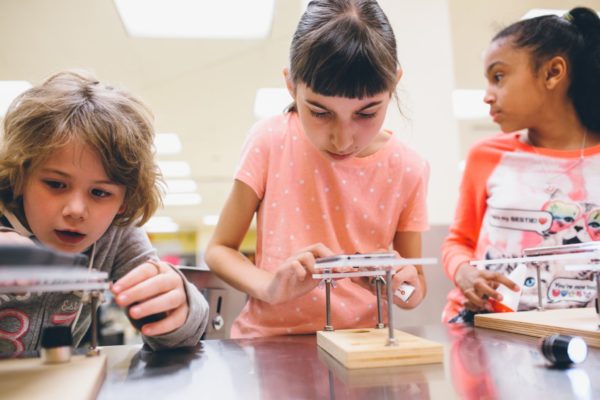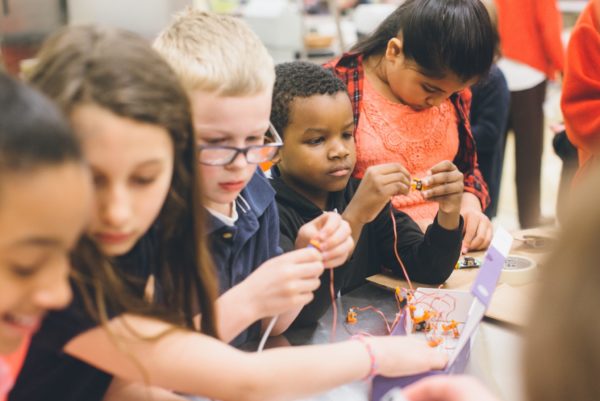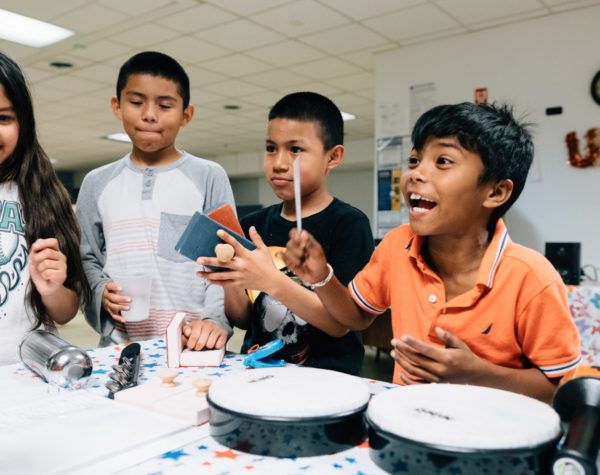
Pittsburgh-based Remake Learning Days is going nationwide this spring
For more than a decade, Remake Learning has served as the hub of a vibrant network of Pittsburgh-area educators, artists, technologists and community organizations with a shared goal of creating innovative, accessible learning opportunities for young people.
Through its Remake Learning Days, the organization has showcased hands-on, engaging educational experiences for youth from pre-K through high school—from STEAM parent nights in Sto-Rox School District to community engagement events hosted by local video game company Schell Games. This year, Remake Learning Days takes over the Pittsburgh region from May 9 to 19.
Now entering its fourth year, Remake Learning Days is poised to expand nationwide this spring.

The catalyst for Remake Learning Days Across America (RLDAA) was the keen interest the flagship festival generated outside the Pittsburgh and West Virginia region.
“We found something that worked in Pittsburgh and thought it could work in other places, too,” says Sunanna Chand, Remake Learning director. “We wanted to help bring a Pittsburgh innovation to places outside our region and provide as much service and support to our friends and neighbors elsewhere as we could.”
One way they are accomplishing this is through an open-source guide, nicknamed “Remake Learning Days in-a-box.” Schools, museums, libraries, after-school programs and other educational organizations can draw from a library of branded images, event planning guides, budgeting tips and other tools to successfully replicate the Remake Learning model in their own cities.
Through national partnerships with PBS and Digital Promise—an organization that aims to close the digital learning gap—RLDAA will expand to include six regions beginning in April: southwestern Pennsylvania and West Virginia; southeastern Pennsylvania; eastern Kentucky; Chattanooga, Tennessee; Chicago; and the “Research Triangle” of North Carolina comprised of Chapel Hill, Durham and Raleigh.
Each region will put its own local spin on the program, but at the heart of all RLDAA events will be quality, hands-on learning experiences organized around the themes of Arts, Maker, Outdoor Learning, Science, Technology and Youth Voice. The categories were chosen with input from focus groups to help parents, caregivers and young people navigate the Remake Learning website and pinpoint the activities that appeal to them most. Maps and age-filtering tools will help users further refine their search.
When considering national locations, Remake Learning staff looked at a combination of factors, including strong STEM ecosystems, PBS affiliates with robust community ties and Education Innovation Clusters (EdClusters) supported by Digital Promise. EdClusters, like the Remake Learning Network, collaborate with local stakeholders to develop tools and resources that serve the unique needs of a region.
“We looked at those intersections and found some incredible learning ecosystems in the places that were selected,” says Chand. “We are confident that in all of these places, many different types of organizations will contribute to the Remake Learning Days festivities.”

According to Chand, the expansion was also designed with equity, diversity and inclusion in mind. She says one question drove the team’s decisions when planning where and how to grow the Remake Learning model: “How do we make sure that historically and currently marginalized parents and caregivers have as much opportunity as any other to experience this kind of learning with the young people they care about?”
This question also underpins Remake Learning’s five pillars of equity, which aim to reach learners in poverty and in rural communities—who may not have broadband internet, for example—as well as girls in STEM, learners of color and learners with exceptionalities including autism spectrum disorder, vision and hearing impairments and learning disabilities. And access is important to educators, too: That’s why Remake Learning Days offers professional development opportunities for teachers, after-school program leaders and anyone else who has a stake in 21st-century learning.
Chand is optimistic that the Remake Learning Days footprint will continue to grow after this year’s pilot expansion.
“We hope that there will be an explosion of events across these regions,” she says, “and that parents and caregivers can attend feeling joyous and excited about the future of learning.”